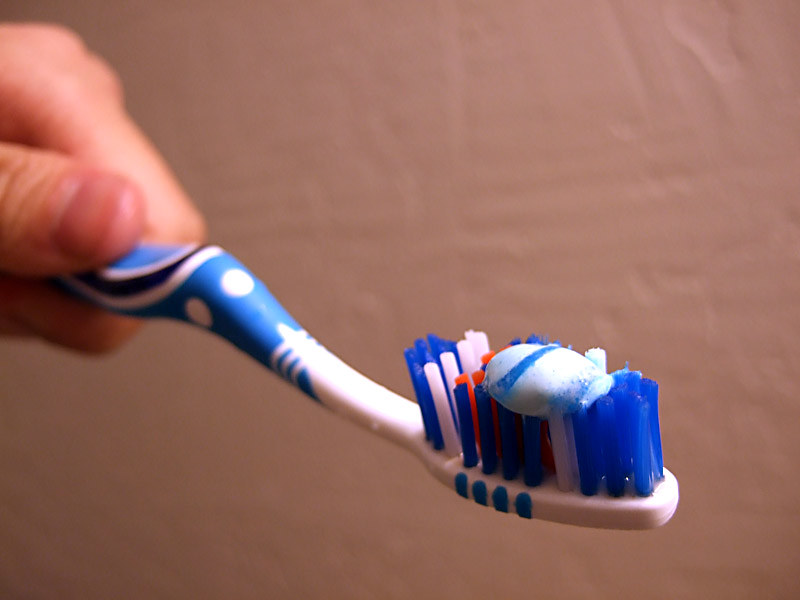“James” handed me a new tube of toothpaste, the box a familiar green and white. Even without opening it up, I could already smell and taste the “jook-yum” (bamboo salt) I grew up with at my parent’s house. I had since switched to Crest, bought in bulk at Costco, forgetting how the two minutes seemed especially long brushing my teeth as a child. Never did I think I would reencounter the niche Korean brand my parents bought at church gatherings or the local market at a clinic in Compton.
As I politely declined, James insisted, pressing the box further into my hand. He glanced at me, slightly squinting due to his diabetic macular edema, and told me softly in Korean:
“Ddal dalmat dah.” (“You remind me of my daughter.”)
When I first began my internship at the local outpatient clinic, James was an enigma to the staff as he could only communicate in Korean or Mandarin Chinese. On days when the one person who could speak limited Mandarin was gone, there seemed to be an extended wait time for the interpreter. James would often get frustrated attempting to express himself, which only led to further miscommunication. Understandably, my arrival was a welcome one, and the staff began to look to me to help bridge this language gap.
When I introduced myself to James, there was a visible change — he sat up in his wheelchair, his hands slightly trembling, almost as if he were in disbelief.
“Hangookin?” (“Korean?”)
When I replied “nae,” the Korean word for “yes” used to show courtesy and respect, he let out a sigh of relief; in the next breath, he shared his difficulty in getting to church, and if he did not go to church, then he could not eat Korean food, and if he could not eat Korean food, he did not know how much longer he would last here. In conveying this to the staff, I saw their expressions change from confusion to understanding. They confided that James had been returning late, but could not figure out where he was going or what he was doing. In one ten-minute conversation, they found an answer to a question they had simmering for a week.
Over the next few months, James and I worked together to help him regain his independence. I added fluorescent tape to James’s pillbox so he could see the contrast better, taught him desensitizing strategies to get his limb ready for a prosthetic, and collaborated with the team to identify diabetic-friendly Korean food. Through this time, his story began to unfold. He had come to America hoping to reconnect with his adult children, entrusting the legal process to a person who claimed they were with a local church. Yet this person did not answer his calls once he arrived in the States. Left completely isolated, James began working at a massage parlor until his uncontrolled diabetes led to neuropathy and vision loss. He then lost his housing and, after a below-the-knee amputation, eventually arrived at the clinic where he was now working with the interdisciplinary team to get housing, a prosthetic leg, and legal assistance.
Throughout my internship, I watched as James took his first steps with the prosthetic, saying prayers of gratitude in Korean, his face streaked with joyful tears. But recovery was non-linear; on the days he experienced swelling and pain in his limb, he could not tolerate bearing weight on the prosthetic for more than five minutes, leading to swears and polite, but firm, requests for me to leave him alone. I saw how his church community was able to get him connected with local, Korean-speaking attorneys, yet a 30-day-stay eventually turned into 60 days, then 90, as there was simply not enough housing.
Despite these challenges, James remained optimistic, always citing my arrival as an example. Every time we met, he asked if I had any prayer requests as he believed it was through God’s intervention that I, a Korean-English bilingual individual, came to this clinic when he needed me most. He would place his hand on my shoulder and say a short prayer, his tone and behavior reminiscent of the Korean church community I grew up in.
While I did not end up taking the jook-yum toothpaste home, I came across it several times since then whenever my parents slipped a new box into the grocery bags filled with “banchan” (side dishes) they packed for me to take home. Every time the gritty, translucent paste coats my tongue and the salty, bitter taste fills my mouth, I find myself thinking of James – wondering if I would ever have the chance to share that he served as my re-inspiration to pursue medicine, if he is comfortable with his prosthetic now, if he ever found his children and if he was able to return home.
Image credit: “All the toothpaste you actually need” (CC BY 2.0) by ToastyKen
WiTTY Wednesdays is an initiative showcasing the works of our Writers-in-Training Program writing interns. WiT is a year-long internship for budding medical student writers. Our interns receive intensive, one-on-one mentoring from our medical student program directors and publish at least 3 pieces during the course of their internship. If you are interested in learning more about the program, please contact us.

